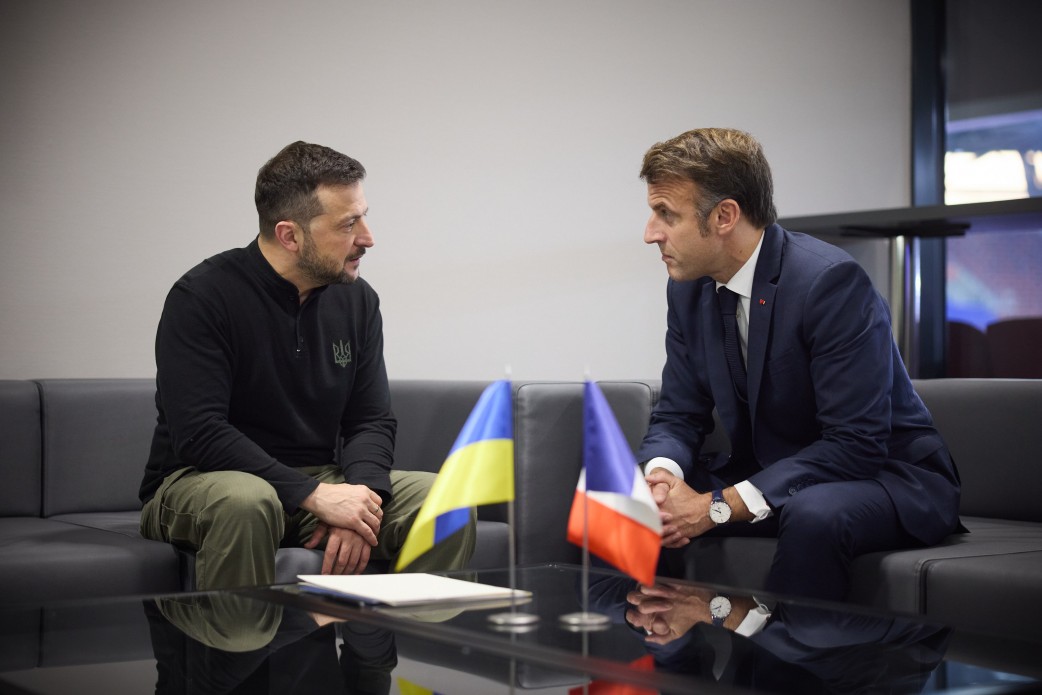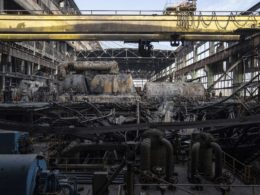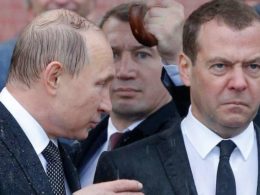Ukrainian President Volodymyr Zelenskyy held a lengthy phone conversation with French President Emmanuel Macron on 17 February 2025, following an emergency meeting of European leaders in Paris.
According to Zelenskyy's post on X, the two presidents discussed "the global situation, the state of affairs in Europe, and security guarantees for Ukraine."
Zelenskyy emphasized that they "share a common vision: security guarantees must be robust and reliable." He warned that "any other decision without such guarantees—such as a fragile ceasefire—would only serve as another deception by Russia and a prelude to a new Russian war against Ukraine or other European nations."
Macron also briefed the Ukrainian leader on his talks with other leaders beyond Europe. The two agreed to maintain constant contact as major decisions are being made, with Zelenskyy stressing that "ensuring a robust and lasting peace is a must. And that can only be achieved through strong security guarantees."
Following the summit, Macron held separate conversations with US President Donald Trump and Ukrainian President Zelenskyy. In an X post, Macron wrote that they seek "a strong and lasting peace in Ukraine," emphasizing that "Russia must end its aggression, and this must be accompanied by strong and credible security guarantees for the Ukrainians." The French president warned that without such guarantees, "there is a risk that this ceasefire will end up like the Minsk agreements."
Major powers sideline traditional EU mechanisms
The emergency Paris summit took place in what was described as a "Weimar Triangle++" format, including France, Germany, Poland, Spain, Italy, the United Kingdom, and several other European countries.
The Paris format represented a significant departure from traditional EU consensus-building approaches, Politico reports. The invitation-only gathering brought together Europe's most powerful nations while deliberately excluding Hungary's Viktor Orbán, Slovakia's Robert Fico, and others considered sympathetic to Moscow.
Even hawkish smaller EU members like Latvia and Estonia were not included, highlighting what Politico describes as "patience running thin with the EU's exasperating Council meetings, where countries often fail to agree on proposals, or water them down to near irrelevance."
The leaders gathered at the Élysée Palace faced the urgent task of developing strategies for Ukraine and European security in a new geopolitical reality where American protection appears to be waning. According to Politico, European officials were "stunned when Trump announced last week that he had spoken to Vladimir Putin and would be opening negotiations on ending the war 'immediately.'"
Polish Prime Minister Donald Tusk, who currently holds the EU's rotating presidency, explained the rationale for the limited-participation format, noting consultations had been underway "on the convening of this mini-summit, bringing together the largest and most engaged European countries in international and geopolitical matters."
Politico says that despite the three-and-a-half-hour discussions, participants did not produce a comprehensive solution to Europe's security challenges or a definitive plan to protect Ukraine from Russian aggression.
Related:
- NATO chief: Europe ready to step up to lead Ukraine security guarantees
- Ceasefire without security guarantees will fail like Minsk agreements, Macron warns
- Top Russian, US officials set to hold talks on Ukraine without Ukraine Saudi Arabia
- “Unthinkable”: French FM Barrot rejects Russia’s G7 return, citing aggression and security threat
- Macron hosts Paris summit as US-Russia talks on Ukraine raise European concerns
- At Munich, Zelenskyy bets on European army as Ukraine’s plan B
- Ukraine to teach NATO how to combat Russia’s threats in new joint defense center in Poland
- Zelenskyy warns against “Afghanistan 2.0” scenario in Ukraine





